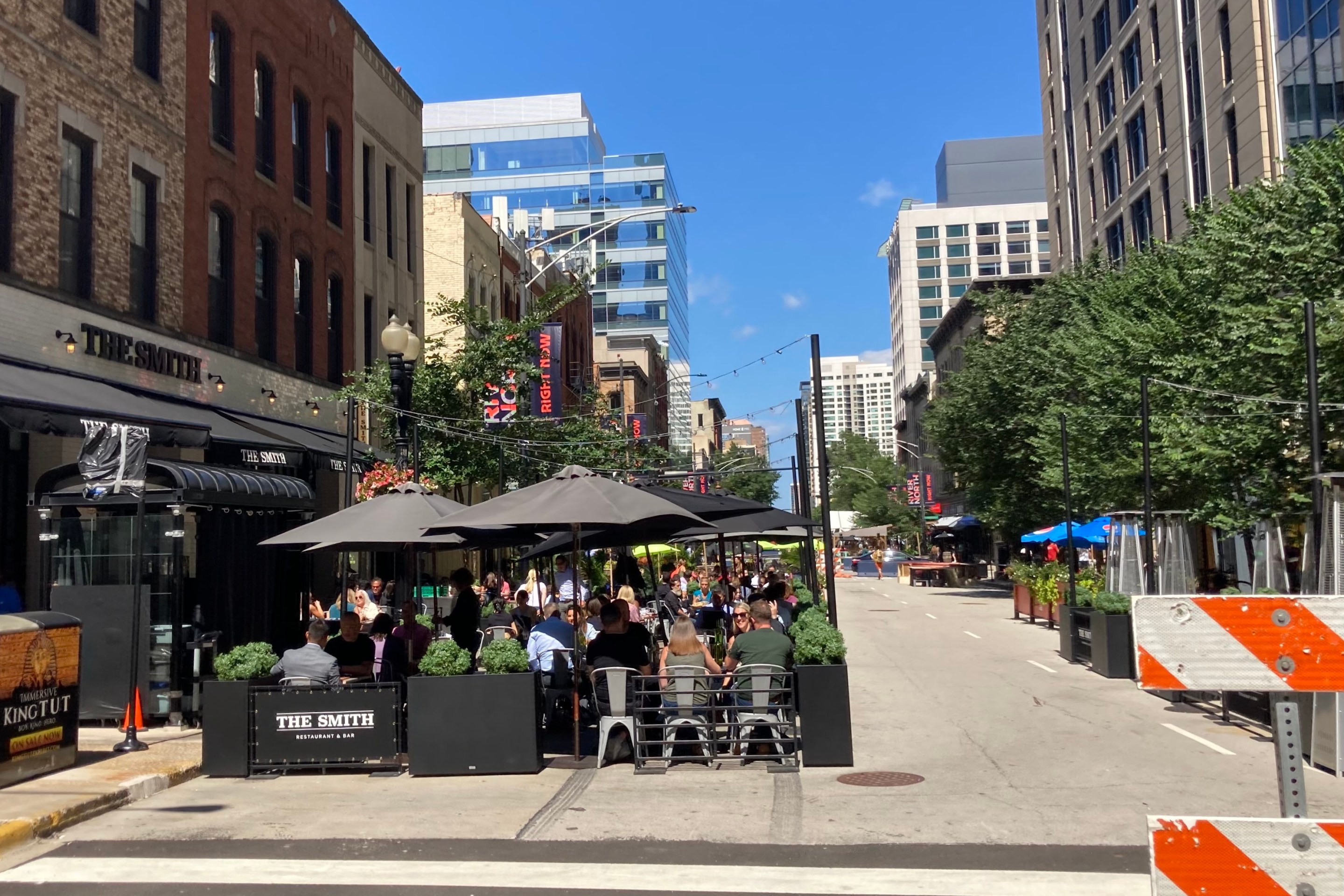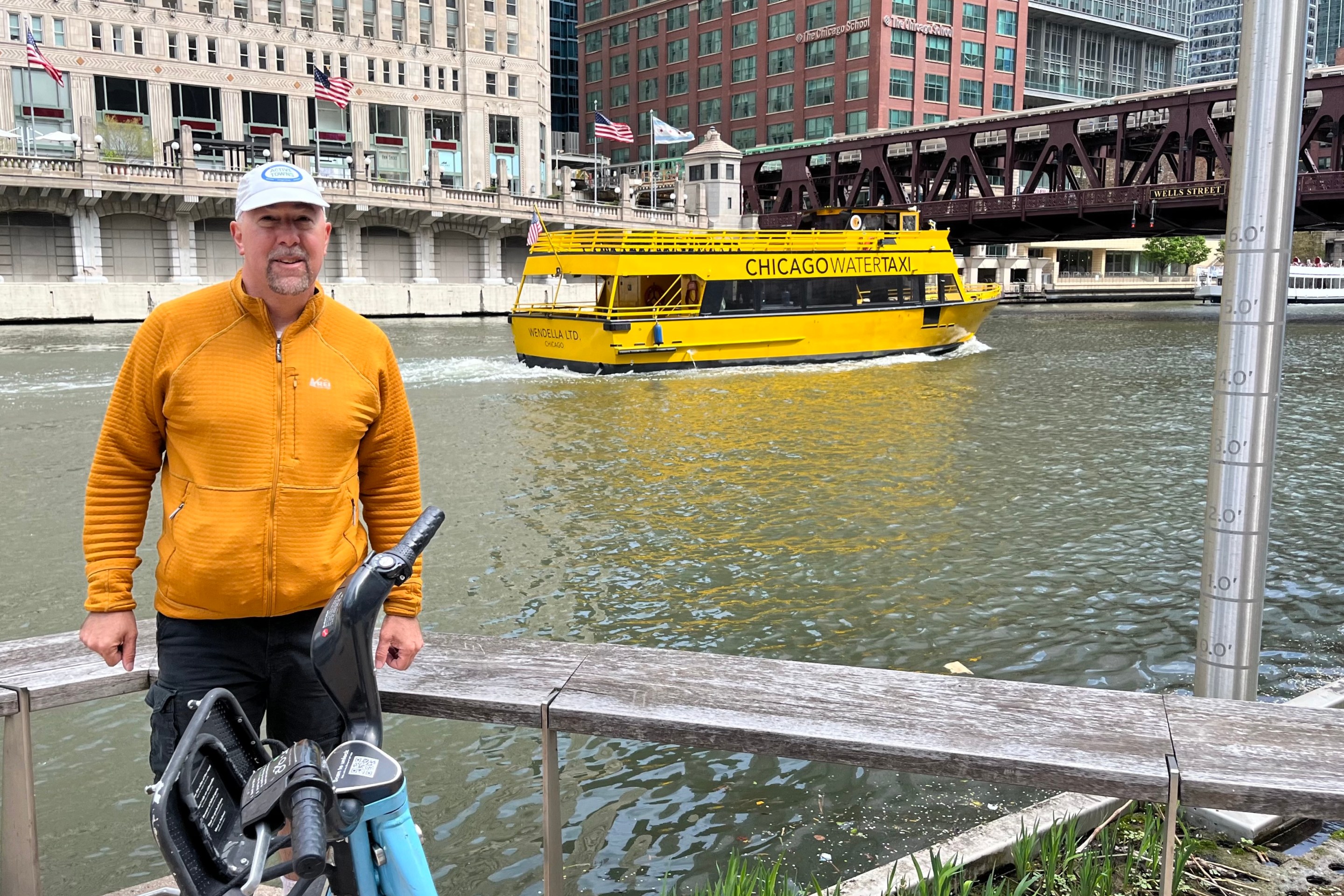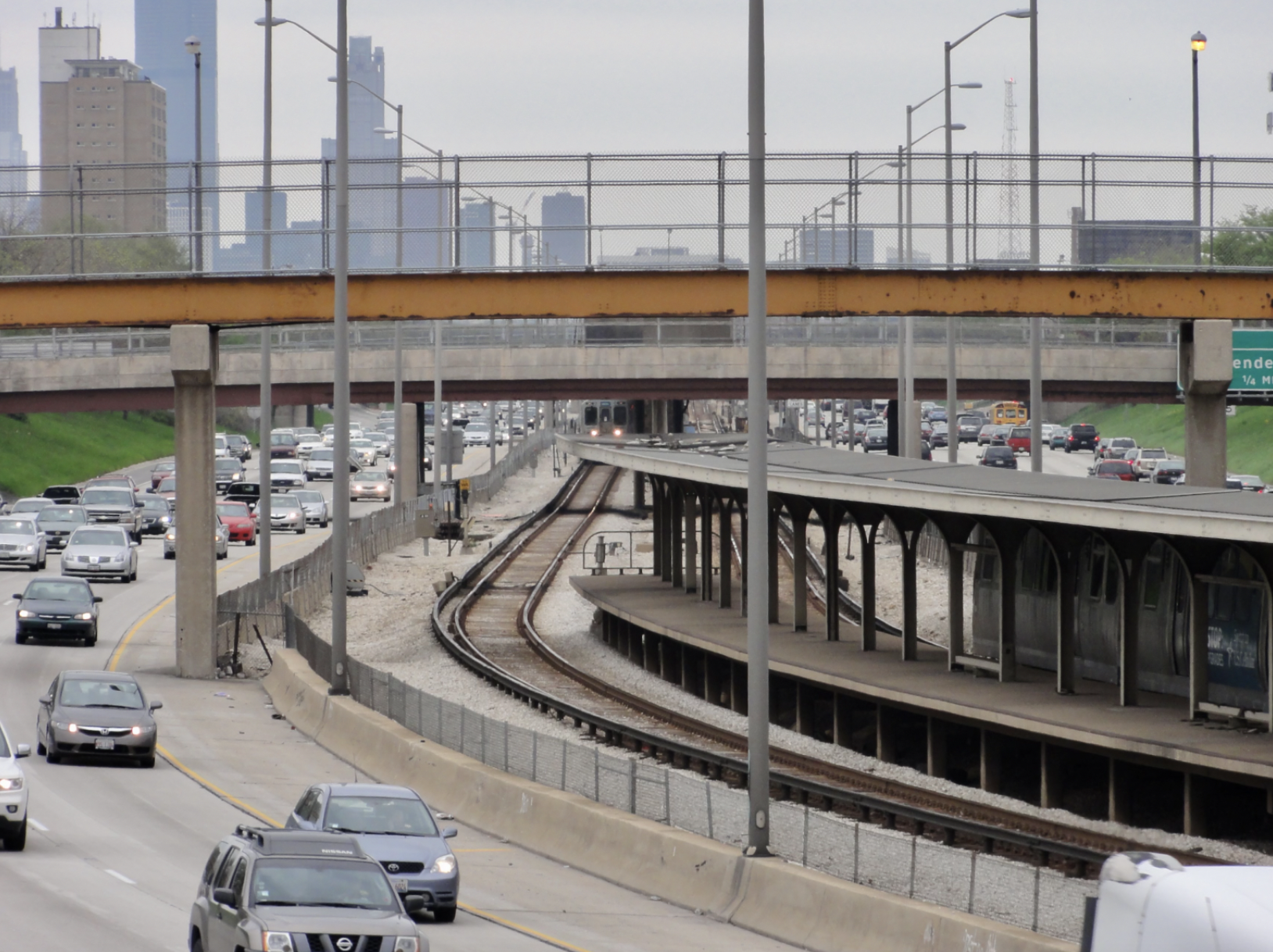One aspect people like about the Chicago Crash Browser is looking up crashes along the route they bike to see if there are areas that should be avoided. What if you could also avoid routes that have high pollution, are especially noisy, or lack good street lighting?
A group from the School of the Art Institute of Chicago is working on it. They call their creation the "Mote.o.bike." It's a sensing device that uses GPS to record your location while collecting data on temperature, humidity, air quality, noise, and lighting levels. The team includes Miguel Perez and Colin Hutton, working with professors Doug Pancoast and Robb Drinkwater. Eight other students have contributed. The quartet presented the "mote" at Tuesday's OpenGov Hack Night.
The data Mote.o.bike collects is subject to exposure bias: your air quality will show as polluted if you are always riding behind trucks and buses. Yet an enormous network of motes traveling around the city, constantly measuring air quality on thousands of unique routes, would be able to generate a view of how the city is meeting its air quality goals (set forth in the Chicago Climate Action Plan and by the EPA). The mote's sensors measure carbon monoxide, and add-ons can track nitrous trioxides (to measure ozone), volatile organic compounds, and hydrocarbons.
While the mote is not quite ready for distribution (the prototype needs to be made more durable), its inventors hope to make them available to SAIC students, to sell them, and to let people build their own by making the plans publicly available online.
To learn more, I talked to Hutton, who moved to Chicago in 2008 to attend SAIC, from Bowdoinham, Maine, and rides a bike in the city when the weather's warm.
Steven Vance: Why build such a device, and what is it made of?
Colin Hutton: It's an Arduino-based* circuitry connected to many sensors in a "stack." We made this mostly because we all wanted to "figure out" the city in a way that was mobile and accessible, and we saw the bicycling movement as a way tap into a community that was already well-established. We want to collaborate with that community to have a full map of Chicago, with all the data it can generate, and to give that data back, possibly in the city's data portal.
SV: What are the future plans? Will the instructions be open-sourced or will the device be sold?
CH: They will absolutely be open-sourced. We want to make sure that everyone can get one, even if they don't get it through us. We plan on open-sourcing everything. We don't want to have this be a capitalist interest. We're not trying to make a product, but a service. The more people who have the Mote, the better. What fun would it be if only rich people were collecting data and mapping the city?
SV: How can this be used for routing and giving people trip suggestions?
CH: Routing is where I think this device has the most potential. Besides it being really awesome to see all this data collected, it can influence where you ride, and your way of life. You suddenly have this ability to hold up a mirror to the city: I rode through this before, but I don't have to ride through it again because of all the carbon monoxide; maybe that's why I have a headache every morning.
It's an exciting thing to use the data and have a functional data set. It's not meaningful to have this huge dataset that's no one looking at or using. The routing makes it more interactive. That's what got me excited; It was interactive.
*Arduino is a microcontroller you can buy locally at RadioShack and MicroCenter for about $30. There are dozens of sensors that can be attached to whatever you build and it uses a simple programming language. A large community shares ideas, applications, and troubleshoots.






